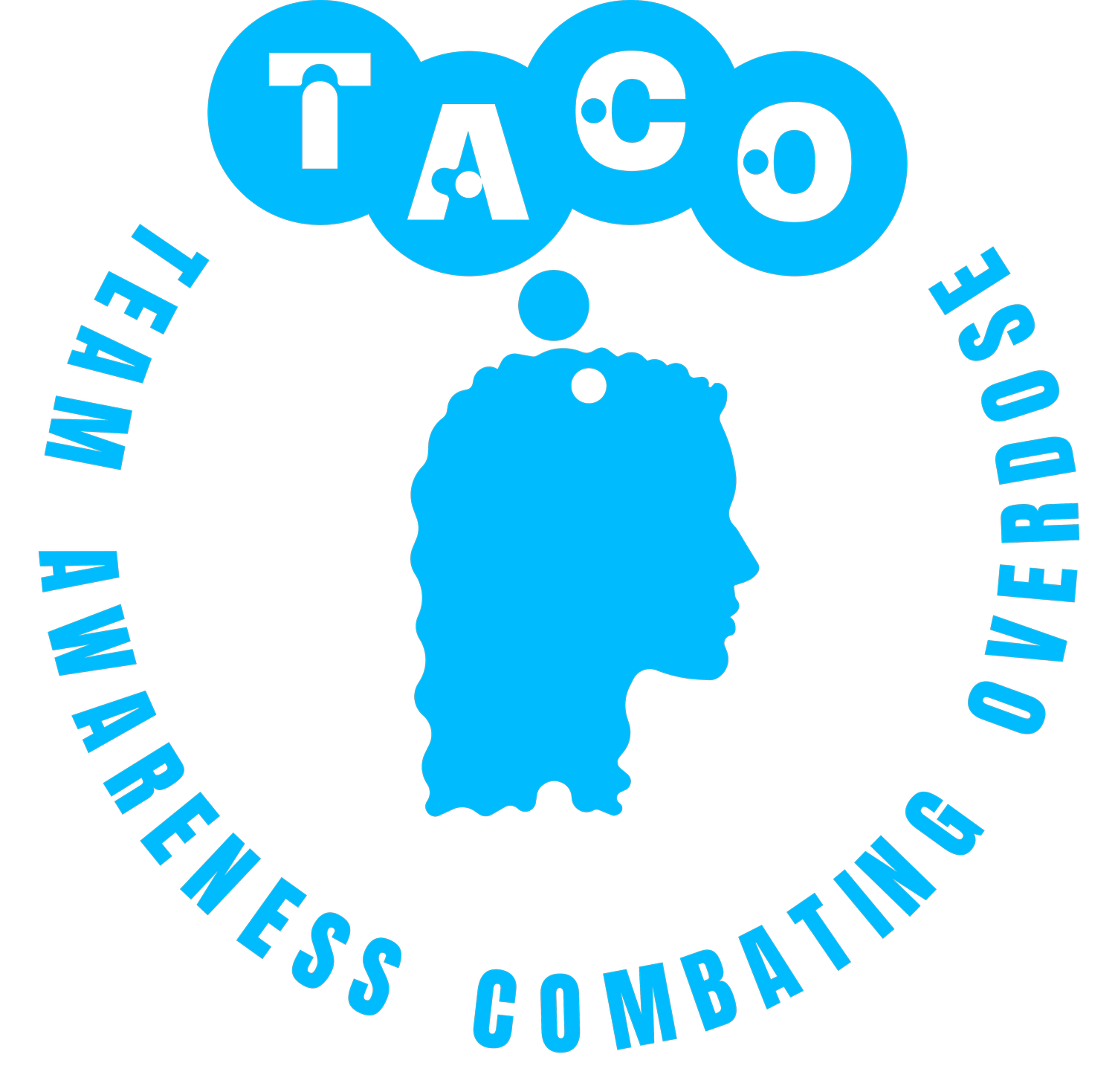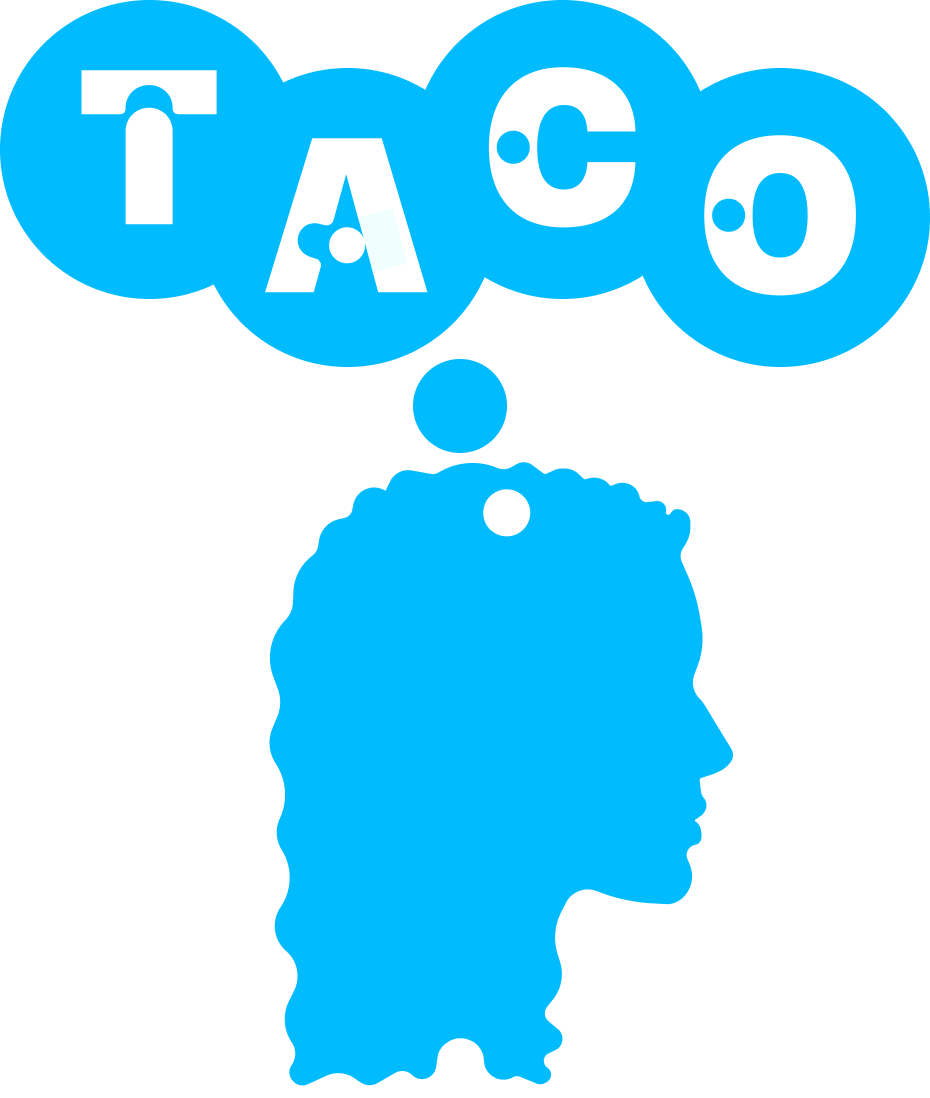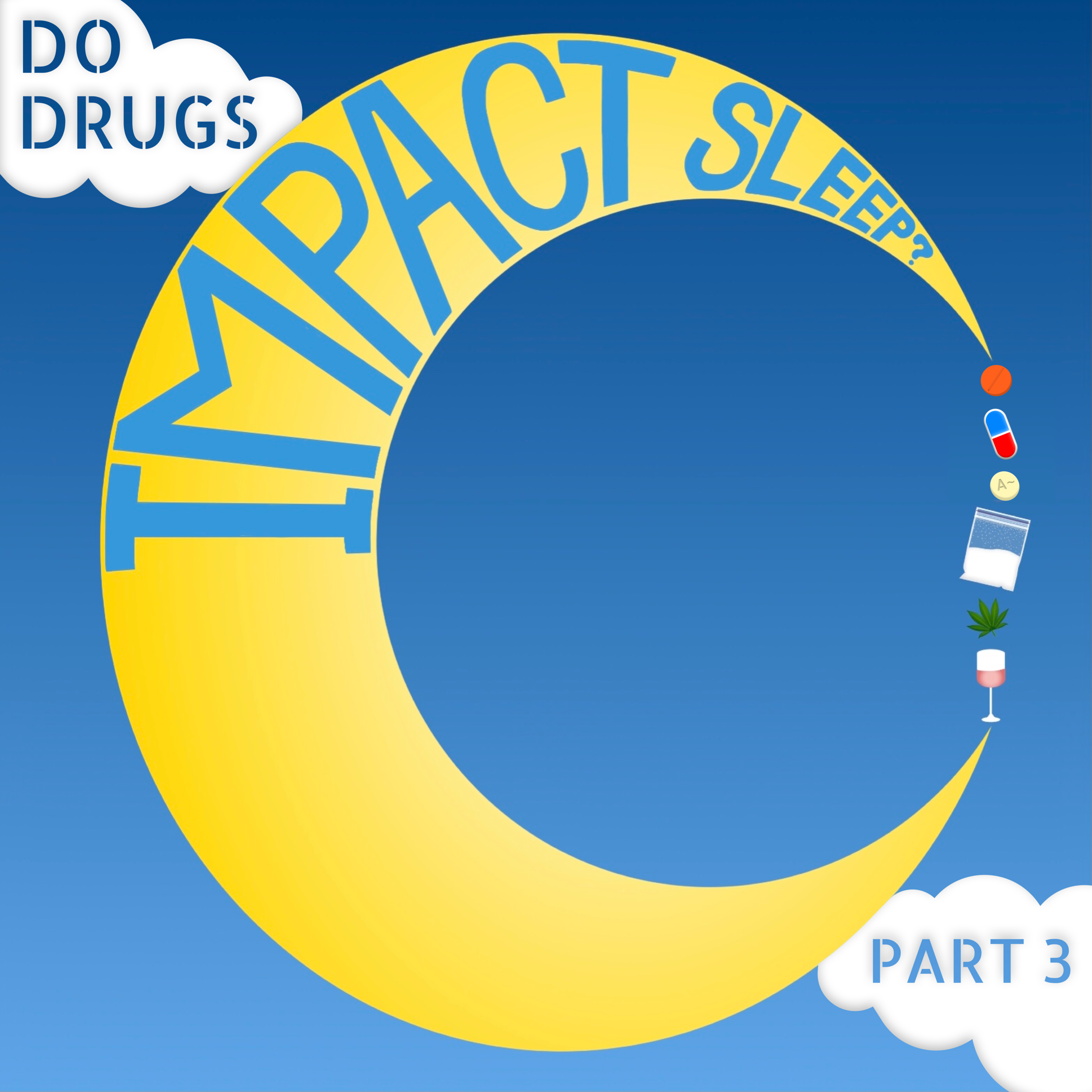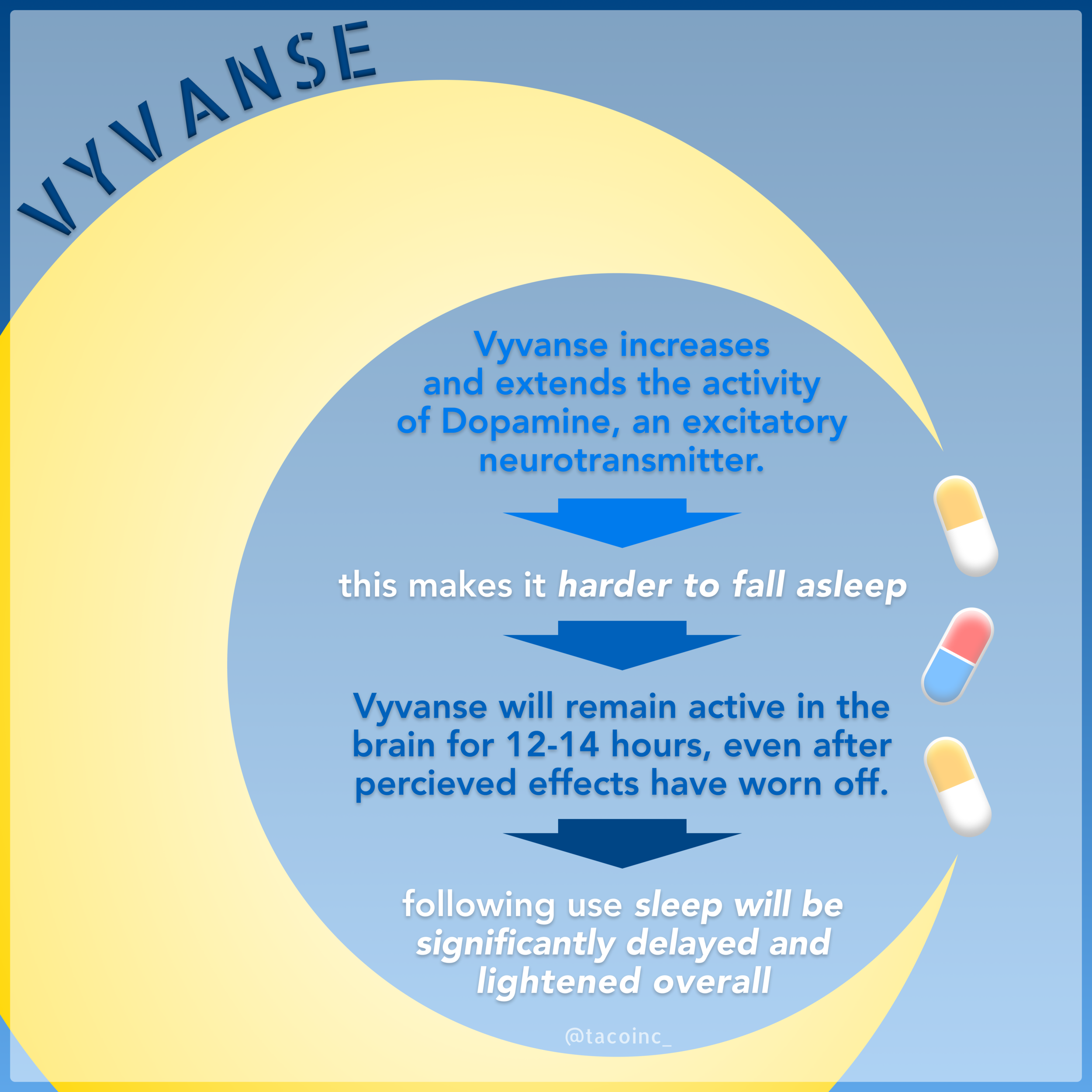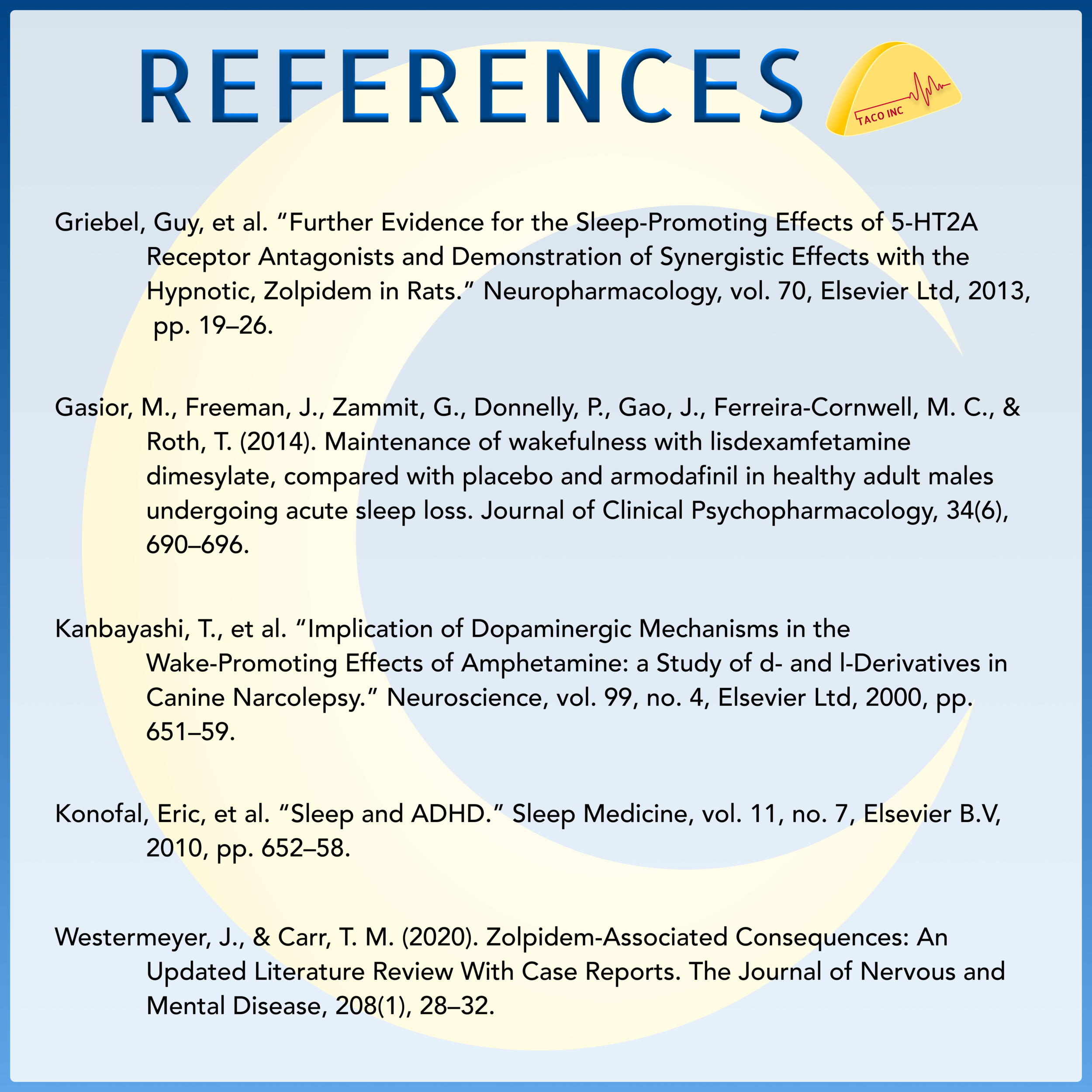Does Adderall, Ambien, or Vyvanse Impact Sleep?
Do Drugs Impact Sleep? Part 3 - Adderall, Ambien, Vyvanse
⚡️Amphetamines, like Adderall, are commonly used to treat ADHD. Since they are stimulants that help maintain alertness, they can also cause sleep disturbances. Their purpose is to increase vigilance and reduce daytime drowsiness! They’ve also proven useful in keeping those with Narcolepsy awake. Adderall shortens the user’s total sleep duration by delaying the onset of sleep and causing more frequent awakenings during the night. These stimulants can even cause dyssomnias, AKA sleep disorders, that make it more difficult to fall asleep or stay asleep😳
🌀Zolpidem, which you probably know as Ambien, is a short-acting hypnotic that’s frequently used to treat insomnia, or difficulty falling asleep. Because of its short duration of effects, Ambien may not help the user stay asleep unless the extended release (XR) version is used. In many cases, insomnia was reported to occur the night after last Ambien use🤔
🤓Vyvanse, chemically named Lisdexamfetamine dimesylate, also treats ADHD and enhances focus. Vyvanse has shown to significantly increase the time it takes a person to fall asleep once the lights are turned off. D-amphetamine is the active component in both Vyvanse and Adderall, and the two prescription drugs show very similar effects! The primary difference is that Vyvanse is longer acting, meaning it will delay sleep more than Adderall💡
